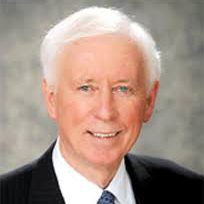Different Paths, Inspiring
Recently I was at a meeting in Bangkok talking with a fellow physician about the variety of religions in the world – their differences – their similarities. He comes from a Buddhist and I from a Christian tradition. We were trying to reconcile the different beliefs that are strongly even fiercely held by those following their own religious practices (traditions). These differences have over the years have been so strongly held that they are responsible for much strife in the world.
Referencing the meeting we were attending, my colleague said, our travel in association with meetings is a little like religion. Traveling to meetings we all start out from different places. We travel on different airlines and make connections at different cities. So while the routes we travel vary, in the end we arrive at the same place, at the same time, at the meeting.
In like manner we as humans come from different traditions and cultures. We practice and believe in different religions. We travel different paths to get to the same place – relationship with a supreme being.
In my travels this year I have seen how different countries have approached health system reform. While there are great similarities, each has traveled a different path – a path that works for them. And in each case the goal that all seem to share, the goal that trumps all others is to provide healthcare for everyone. I find that inspiring.
I was also inspired in my recent visit to the British Medical Association (BMA) Annual Representative Meeting (ARM) in Edinburgh, Scotland. One of the traditions of the BMA is that annually the evening before the opening session of the ARM a service is held for delegates called the “Reflections and Thanksgiving Session”. I have been privileged to attend three of these sessions over the years while at the ARM.
This year’s event as described in the program: “includes reflection on health and healing from Jewish, Christian Muslim, Sikh, Hindu, Buddhist and Humanist faith and belief perspectives. All found in “Reflections of Life, Words of Comfort and Encouragement”, NHS Education for Scotland, 2011.” The readings were given by leaders from each of the faith and belief perspectives. They were interspersed with musical interludes by vocal and instrumental performers and singing of hymns by the audience. Different paths – inspiring.
And the icing on the cake if you will, the next morning, Speaker Dr. Steve Hajioff, in his remarks calling the opening session of the ARM to order talked about the importance to the profession of medicine of working from a platform based on principle and ethics. He highlighted the World Medical Association’s Declaration of Geneva.
At its founding in 1947 in the aftermath of WWII the WMA recognized the need for a renewed emphasis on medical ethics. It noted that the custom of medical schools to administer an oath to doctors upon graduation or receiving a license to practice medicine had fallen into disuse or become a mere formality. The WMA was of the opinion that the establishment of a suitable oath or pledge to be administered as a part of the graduation or licensing ceremony would help to impress on newly qualified doctors the fundamental ethics of medicine and would assist in raising the general standards of professional conduct. This document, The Declaration of Geneva, also known as the new Hippocratic Oath, was adopted by the WMA in 1948.
Dr. Hajioff concluded his remarks by leading the ARM in reciting the Declaration of Geneva as follows:
“AT THE TIME OF BEING ADMITTED AS A MEMBER OF THE MEDICAL PROFESSION:
I SOLEMNLY PLEDGE to consecrate my life to the service of humanity;
I WILL GIVE to my teachers the respect and gratitude that is their due;
I WILL PRACTISE my profession with conscience and dignity;
THE HEALTH OF MY PATIENT will be my first consideration;
I WILL RESPECT the secrets that are confided in me, even after the patient has died;
I WILL MAINTAIN by all the means in my power, the honour and the noble traditions of the medical profession;
MY COLLEAGUES will be my sisters and brothers;
I WILL NOT PERMIT considerations of age, disease or disability, creed, ethnic origin, gender, nationality, political affiliation, race, sexual orientation, social standing or any other factor to intervene between my duty and my patient;
I WILL MAINTAIN the utmost respect for human life;
I WILL NOT USE my medical knowledge to violate human rights and civil liberties, even under threat;
I MAKE THESE PROMISES solemnly, freely and upon my honour.”
In the end, the same paths – inspiring.

